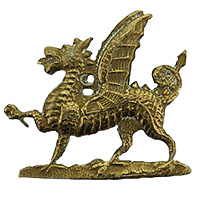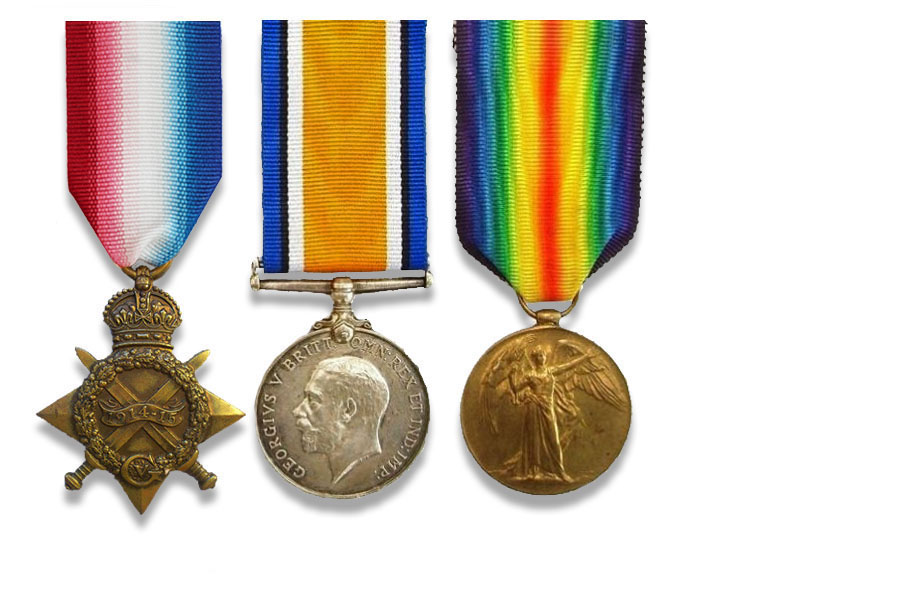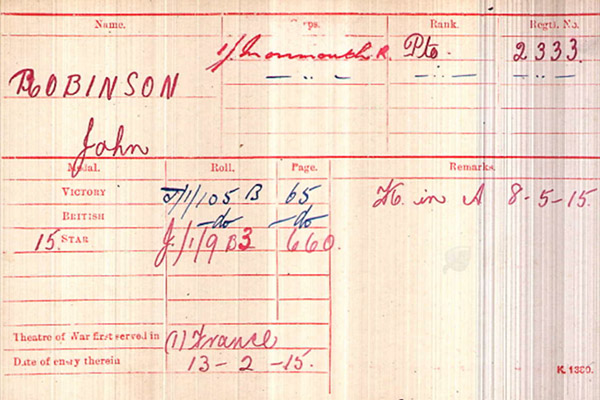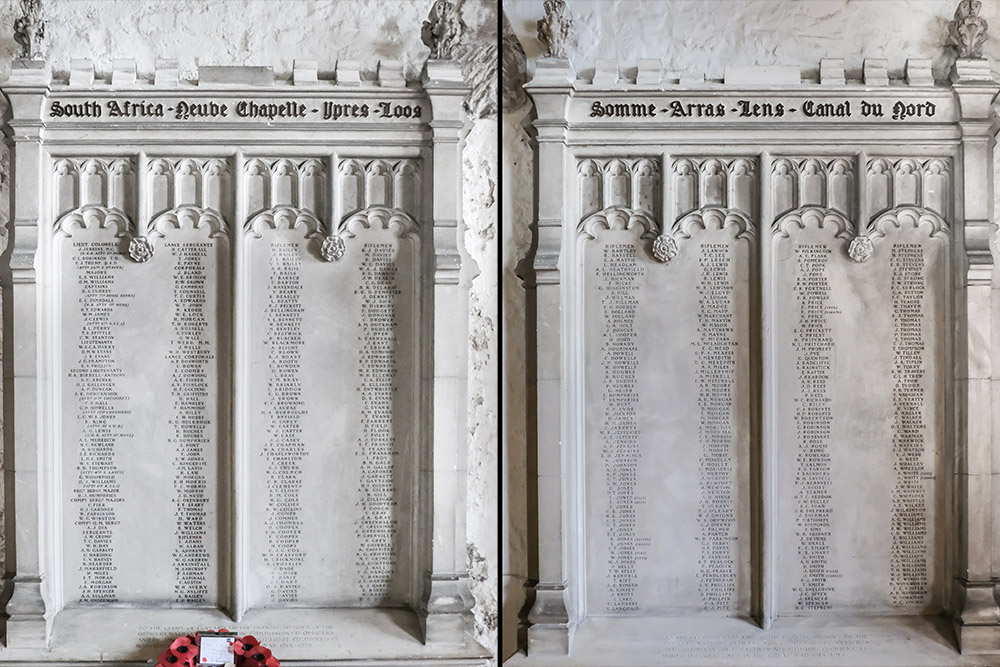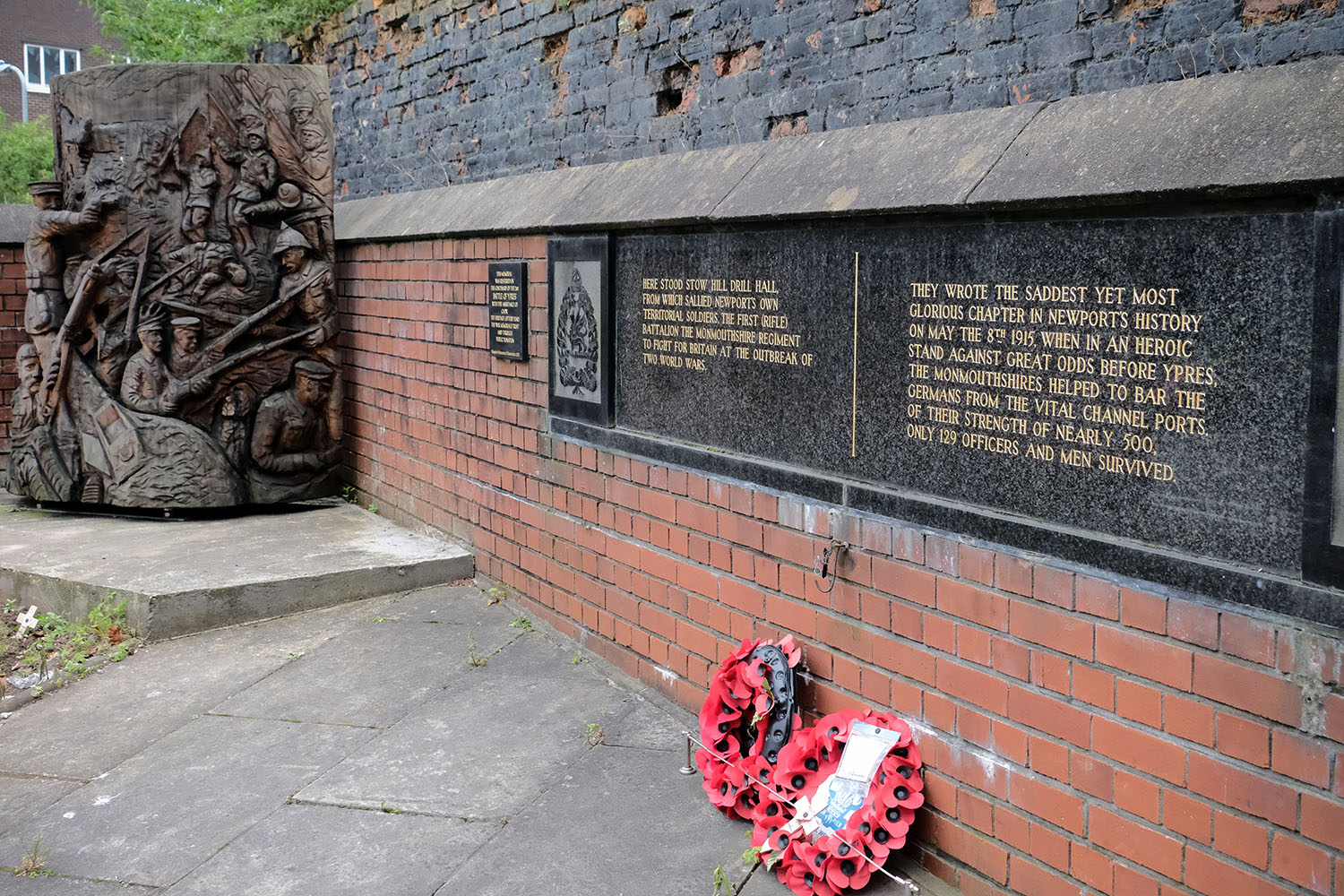| Unit/Regiment | Monmouthshire Regiment |
| Battalion | 1st |
| Rank | Private |
| Service Number | 2333 |
| Theatre of War first served in | France and Flanders |
| Date of entry therein | 13/02/1915 |
| Age at Death | 23 |
| Date of Death | 08/06/1915 |
| Burial/Memorial | Ypres (Menin Gate) Memorial, Belgium |
| CWGC Family Details | Son of James Roxburgh Robinson and Florence Robinson, of 403, Chepstow Rd., Newport, Mon. |
| Born | Wigan, Lancashire |
| Enlisted | Newport, Mon |
| Resided | Newport, Mon |
| How Died | Killed in action |
| Theatre of War | Western European Theatre |
| Medal Entitlement | 1914-15 Star British War Medal Victory Medal |
| Notes |
John Robinson's Story
Family
John was born in 1893 the son of James Roxburgh and Florence Robinson. The family appear for the first time in Wales on the 1911 Census, at this
time they are living at 20, Somerton Road. Florence, John’s mother had died and James was left with their three children Ethel Lilian aged 21, John aged 18
and Elsie who is 15.
James had worked in the Steel Industry for most of his working life, so it’s natural John would follow in his footsteps. In 1911 James is listed as a
Manager in the Sheet Rolling Mill and John also works at the Sheet Mill.
By the end of the war the family were living at 403, Chepstow Road and James has remarried to Elizabeth Ann.
Military
John joined up almost immediately and was joined the 1st Monmouthshire Regiment to became Rifleman Robinson 2333. On 13th February 1915, the 1st
Monmouths docked at Boulogne. By late April the Battalion was sent to Belgium to defend Ypres and it was in this area that John lost his life.
On 8th May during the Battle of Frezenberg Ridge the 1st battalion Monmouthshire Regiment was decimated. The German bombardment prior to the attack was
described by Sir John French when he addresses the Brigade as “probably the heaviest to which troops had ever been subjected to”. It began at 6.30am and
as the morning wore on there were many casualties. The Germans managed to break the line, leaving the Monmouths had to defend themselves from the front as
well as the right flank. Heavy Machine Gun fire from the right flank was directed at these trenches and they began to collapse in places.
Later in the morning all communication by wire was cut, forcing Colonel Robinson the commanding officer to enter the trenches himself and order the battalion
to fall back to a new position. At 11am while the men were attempting to file out through the communication trenches, which were very shallow, narrow and
were full of bodies, Colonel Robinson was killed. When the men eventually reached their new position, they found themselves once more under heavy machine
gun fire. The Northumberland Fusiliers fell back towards the trenches now occupied by the Monmouths with the Germans following them. The Monmouths managed
to muster enough fire power to stop the Germans in their tracks. Another heavy bombardment took place around dusk resulting in yet more casualties.
Towards the end of the evening the Dublin Fusiliers took over the positions of the Monmouths.
The following day 2 officers and 10 men were all that was left of the regiment in the firing line. 33 men were listed as killed and 319 were missing with
82 reported missing and wounded, a total of 434. The Officers reported as 5 killed, 5 wounded, 1 missing and 1 taken prisoner.
We will never know when John met his fate on that terrible day, but he along with Thomas Henry Counsell and George Harry Hyde all in the 1st Monmouths died
on that fateful day. The three men are remembered at Ypres in Belgium on the Menin Gate and in Newport on the Orb War Memorial.
James, John’s father, received his back pay and War gratuity of £3.00

